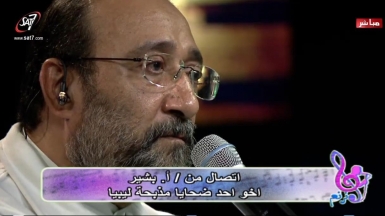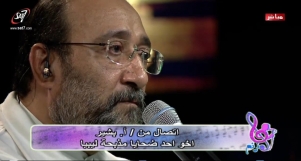
Stories of forgiveness from people affected by Islamist extremism have now been watched by more than a million people, according to the SAT-7 satellite broadcasting organisation.
Most of those who have watched the videos of a 10-year-old Iraqi girl displaced by Islamic State and of the brother of two Egyptian labourers beheaded in Libya live in the Middle East.
SAT-7's Egypt director Farid Samir said that the massive interest in the clips shows the impact of "resisting violence through forgiveness".
The video of 10-year-old Myriam saying she "will ask God to forgive IS" was watched by more than 200,000 people within 42 hours of appearing on the SAT-7 ARABIC Facebook page.
An earlier clip in which an Egyptian Christian called in to a SAT-7 worship programme within days of his two brothers' deaths at the hands of IS was watched by at least half a million people in the first week and shared on news sites around the world. The videos have also been uploaded by other sites not linked to SAT-7 pages, so that the total viewership is higher still.

Beshir Kamel, from the home village of 13 of the 21 Egyptians whom the Coptic Orthodox Church has now recognised as martyrs, prayed that God would "open the eyes" of their killers to be "saved". Myriam, from Qaraqosh in Iraq, said "God loves everybody" including IS members, but "he wouldn't let IS kill us". Sitting in a half-built shopping mall which had become her family's temporary home, she ended her interview by singing a song of joy about being made complete in Jesus to a tune her mother had written.
Samir said: "These clips provide a counter-shock to the horrifying videos of killings that people receive on mainstream media and to their effect on viewers. Myriam's and Beshir's calls are a form of resistance through forgiveness. Forgiveness is the core of the Christian message and the core of the message of SAT-7 at a time when mainstream media avoids reporting on Christians."
SAT-7 UK Director Rachel Fadipe added: "In a climate in which world media has highlighted IS' use of social media to recruit people set on violence and to document acts intended to spread terror, the SAT-7 clips spread a radically different message."















